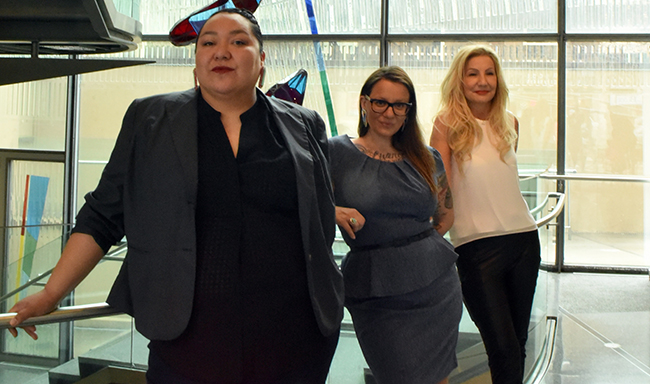First Indigenous-branded glucometer in Canada hits the market

By Rick Garrick
TORONTO—First Canadian Health and Spirit Pharmaceuticals are planning to expand sales of their SPIRIT meters, lancets and test strips to Indigenous people with diabetes across Ontario. They are currently offering the glucose monitoring equipment for sale in the Greater Toronto Area with 50 per cent of the profits flowing back to the community as of May 1 through the Anishnawbe Health Foundation.
“It’s the first Indigenous-branded glucometer in Canada,” says Stephanie Pangowish, director of Indigenous relations for First Canadian Health and Wikwemikong citizen. “We’re providing 50 per cent of the profit back to Indigenous communities to help support programming for healthier lifestyles or under-funded programs or even things like Pow Wows that support physical activity.”
The SPIRIT meter is an Indigenous-branded diabetes monitoring device that is available through licensed pharmacies. The licensed manufacturer of the SPIRIT meter is ARA Pharmaceuticals Inc.
“[We] really wanted to make a difference in Indigenous health, right at the grassroots community level,” says Heather Berthelette, CEO of Spirit Pharmaceuticals, COO of Tribal Councils Investment Group of Manitoba and Métis citizen from Manitoba. “So we thought we would brand a diabetes meter and donate 50 per cent back to Indigenous health to eradicate diabetes in our communities.”
Cherie Dimaline, COO of First Canadian Health and Métis citizen from Georgian Bay, says the SPIRIT meter initiative brings First Canadian Health back to doing business that has Indigenous knowledge at its core and Indigenous wellbeing as its outcome.
“It was a way we thought of to get some real dollars into the community,” Dimaline says. “Seeing as how we’re impacted by diabetes at such a higher rate, we really wanted to concentrate on that as being our first major health project.”
Diabetes in Toronto’s Indigenous community is three to five times greater than the general population, according to a study conducted by Anishnawbe Health Toronto. Anishnawbe Health Toronto has been the only provider of western medical services and traditional healing services to the rapidly growing urban Indigenous population in the GTA since 1987.
“Anishnawbe Health Foundation is very grateful to be the beneficiary in the GTA for this unique program,” says Julie Cookson, executive director of Anishnawbe Health Foundation. “This funding initiative allows Anishnawbe Health Toronto’s clients and others within the GTA area to support their Community Health Centre and diabetes programming.”
Pangowish says the meter is very simple to use.
“It provides quick results,” Pangowish says. “And it’s actually been tested against its competitors on the market, so it is 100 per cent covered through [Non-Insured Health Benefits]. All you do is put a very small sample of blood on it and it provides you with the results within three-to-five seconds.”
The SPIRIT meter was first introduced in Manitoba in June 2016.
“It is rolled out in Manitoba and we just signed our first [Ontario] partnership with Anishnawbe Health Toronto,” Pangowish says. “We are concentrating with Ontario at the moment, but we are planning on going national and we’ve even had inquiries in the U.S.”
Spirit Pharmaceuticals and First Canadian Health are subsidiaries of Tribal Councils Investment Group of Manitoba, with a focus on the betterment of Indigenous communities.


